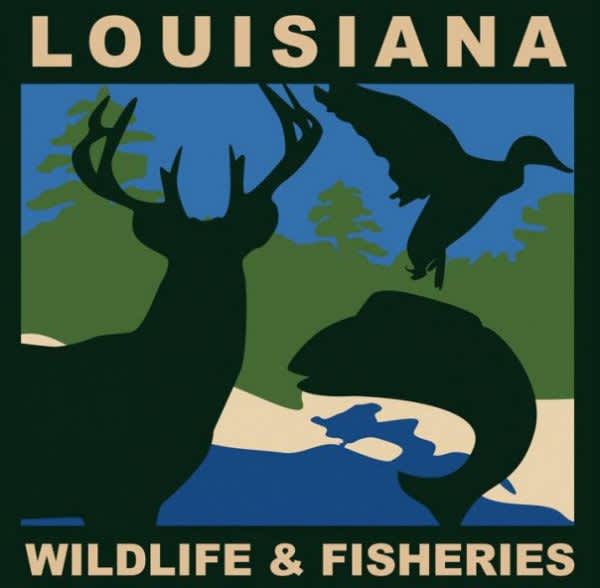Alligator Violations on the Rise in Louisiana

The Louisiana Department of Wildlife and Fisheries (LDWF) Enforcement Division has seen a steady rise in alligator violations since 2009.
According to LDWF violation statistics, Enforcement Division agents have issued 98 alligator related violations in 2012 already. LDWF issued 60 total alligator related citations in 2007 and 2008, 69 in 2009 and 2010, and 80 in 2011.
“The increase of alligator citations is of concern and the department is doing their best to catch these violators,” said Col. Winton Vidrine, head of the LDWF Enforcement Division.
The popularity in outdoor reality TV shows seems to be one of the reasons why there have been more alligator violations in the last couple of years.
“In some of our cases the subjects have admitted to watching a reality TV show and then wanting to replicate what they watched,” said Col. Vidrine. “While these shows offer a high level of entertainment, they do not offer a lot of information on how to legally harvest an alligator.”
The majority of the alligator violations are classified as possession of an alligator during a closed season, failing to possess a license and possession of an alligator without a license. Also, most of the increases in violations are occurring in the Saint Mary, Saint Martin, Assumption, Saint James, Saint John, LaFourche and Terrebonne parishes going from two violations in 2010 to 42 violations so far in 2012. For illegally possessing an alligator, poachers can get up to a $950 fine and 120 days in jail for the first offense.
LDWF issues alligator harvest tags for property containing sufficient alligator habitat capable of sustaining an alligator harvest. A resident alligator hunter must either own this approved land or have permission to hunt alligators on land that is classified as wetland habitat in order to qualify for alligator harvest tags. Alligator hunters apply for alligator tags prior to the season. To apply for tags, hunters must submit an application prior to the season found atwww.wlf.louisiana.gov/wildlife/alligator-hunting.
The alligator season is split into an east zone that runs from the last Wednesday of August for 30 days and the west zone that goes from the first Wednesday of September for 30 days. A resident alligator hunting license costs $25.
“With the upcoming opening of alligator season, hunters are reminded to utilize their tags only on the approved property and that all alligators caught on their lines must be harvested and immediately tagged,” said Noel Kinler, LDWF’s alligator program manager.
Currently there are an estimated 1.5 million alligators in Louisiana. Since 1972, over 870,000 wild alligators have been harvested.
“The department’s Alligator Program has been very successful in managing the alligator resource from near extinction to a healthy sustainable population,” said Col. Vidrine. “These regulations are put in place for a reason and have worked for over 40 years since their inception in 1972.”
Residents not possessing or having permission to harvest alligators on private lands or public lands/lakes can harvest alligators as an alligator sport hunter while accompanied by a guide. Non-residents can only harvest alligators as an alligator sport hunter while accompanied by a guide. A guide must be an alligator hunter possessing tags. An alligator sport hunter license cost is $25 for Louisiana residents and $150 for non-residents.
Residents not possessing or having permission to harvest alligators on private lands may be able to harvest alligators on public lands or lakes. These public lands/lakes are managed by many different entities ranging from local parish governments to federal governmental agencies. Methods in which alligator hunters are chosen for these areas include bidding and lotteries.
The lottery alligator harvest program provides the opportunity for over 300 resident alligator hunters to harvest approximately 800 alligators on almost 40 Wildlife Management Areas (WMA)/public lakes located throughout the state.
Lottery alligator harvest applications become available mid to late May of each year and lists all available WMAs/public lakes. For more information on LDWF’s Alligator Program, visit http://www.wlf.louisiana.gov/wildlife/alligator-program.
Anyone wanting to report alligator violations should anonymously call LDWF’s 24-hour toll free Operation Game Thief hotline at 1-800-442-2511 or utilize LDWF’s new tip411 program. To use the tip411 program, citizens can anonymously text LADWF and their tip to 847411 or download the “LADWF Tips” iPhone app from the Apple iTunes store free of charge. CitizenObserver, the tip411 provider, uses technology that removes all identifying information before LDWF receives the text so that LDWF cannot identify the sender.

